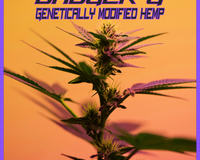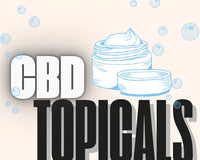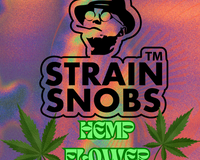Bipolar disorder (also known as Bipolar Affective Disorder or Manic-Depressive disorder) may be one of the world’s oldest known mental illnesses, with potential records of its existence dating back hundreds, if not thousands, of years.

The disorder, often causing dramatic mood swings and alternating between states of depression and mania, affects as many as 2.6% of the adult population although symptoms may have an onset at much younger ages.
Today, doctors are faced with a particular set of challenges when it comes to treating the condition. That challenge: drug abuse – a problem that affects only 6% of the general population, yet plagues more than 50% of all patients with bipolar disorder.
Interestingly enough, studies show cannabis to be the general drug of choice for these patients leading many to question its role in the treatment of this age-old disorder.
Experts say that approximately 4% of the population will fit the criteria for bipolar disorder at some point in their lives. While the underlying cause has yet to be determined, there are a variety of treatment options available for patients.
The first line of treatment is usually lithium, which acts to reverse symptoms of mania, but other mood-stabilizers, anticonvulsants and antidepressants (Risperdal, Depakote and Wellbutrin respectively), are often used as well.
Current pharmaceutical therapies, however, subject patients to a wide range of potential side-effects, which can sometimes outweigh the benefits of the treatments themselves. Add in the predisposed use of recreational drugs and you’ve got yourself a potentially explosive cocktail.
As a result, some are beginning to turn to medical marijuana – a sparsely recommended treatment option that is gradually becoming more and more noticed as research progresses.
Marijuana acts on the endocannabinoid system – a homeostatic regulator that is present in all humans – by interacting with CB-1 and CB-2 receptors. Interestingly, research suggests that certain cannabinoids found in marijuana, i.e. THC and CBD, may have significant mood-stabilizing properties that could be beneficial for patients with bipolar disorder.

Studies have shown that THC, under certain conditions, can have anti-anxiety, hypnotic and antidepressant effects, resulting in improvements in mood and overall well-being in normal subjects, as well as in patients suffering from pain, multiple sclerosis or cancer. CBD seems to counter the psychoactive effects produced by high doses of THC and may also possess anti-anxiety, hypnotic and anticonvulsant properties of its own.
Researchers have also identified a link between marijuana use and cognitive improvements in patients with schizophrenia – a finding that could explain evidence of similar improvements in bipolar disorder.
A number of recent studies have set out to determine the effects of marijuana use on patients with bipolar disorder and have provided some thought-provoking findings.
In 2010, researchers at the University of Oslo in Norway published the results of a study conducted on 133 bipolar patients. What they found was that patients who used cannabis regularly actually performed better than non-users on tests of verbal fluency and learning, although improvements in learning were not statistically significant.
In another study, published in 2012 by researchers at the Zucker Hillside Hospital in New York, regular marijuana use was linked to higher levels of attention, processing speed and memory among the 200 bipolar patients that the researchers followed over a 9 year span.
Despite the overall lack of clinical research available on cannabis use and bipolar outcomes, case reports often provide an abundance of evidence that seem to support its usefulness.
A study published in 1998 by Harvard professors Dr. Lester Grinspoon and James B. Bakalar documented 5 cases in which patients obtained significant relief from their bipolar-related symptoms through the use of medical marijuana.
These cases were also cited alongside others in a review study conducted by a team of British researchers. The review, published in 2005 in the Journal of Psychopharmacology, presented evidence from a 1996 report that described 5 cases in which marijuana seemed to have a direct effect in countering depression. The researchers also cited 2 surveys conducted in 2003 which found that 15-27% of medical marijuana patients in California were prescribed the drug for various mood disorders, including depression, bipolar disorder, PTSD and ADHD.
Of course, some of these studies are a bit older and presumptively lump together both THC and CBD. With ongoing research, however, it seems these two might get separated in the near future.
While THC can be a risky addition to those with an already inherent chemical imbalance, CBD has not shown any substantial side-effects at all. With so much positive research, many are already making the leap to CBD as a regulatory agent and learning how it can benefit them personally.
If this sounds like you, consider some of Discover CBD’s supplemental capsules or maybe even an edible to snack on throughout the day and see what CBD can do for you.
 Have a story to share? Questions about CBD? Let us know in the comments below and we’ll respond right away. In the meantime, sign up for our newsletters and visit our website DiscoverCBD.com regularly for the latest updates, research, legislation and other news about cannabidiol.
Have a story to share? Questions about CBD? Let us know in the comments below and we’ll respond right away. In the meantime, sign up for our newsletters and visit our website DiscoverCBD.com regularly for the latest updates, research, legislation and other news about cannabidiol.
Thank you for taking the time to read our blog! To get your very own Active CBD products, come into any one of our Discover CBD stores, on the web at discovercbd.com, facebook, or by simply calling us at, 719-358-7553 to place an order!

























